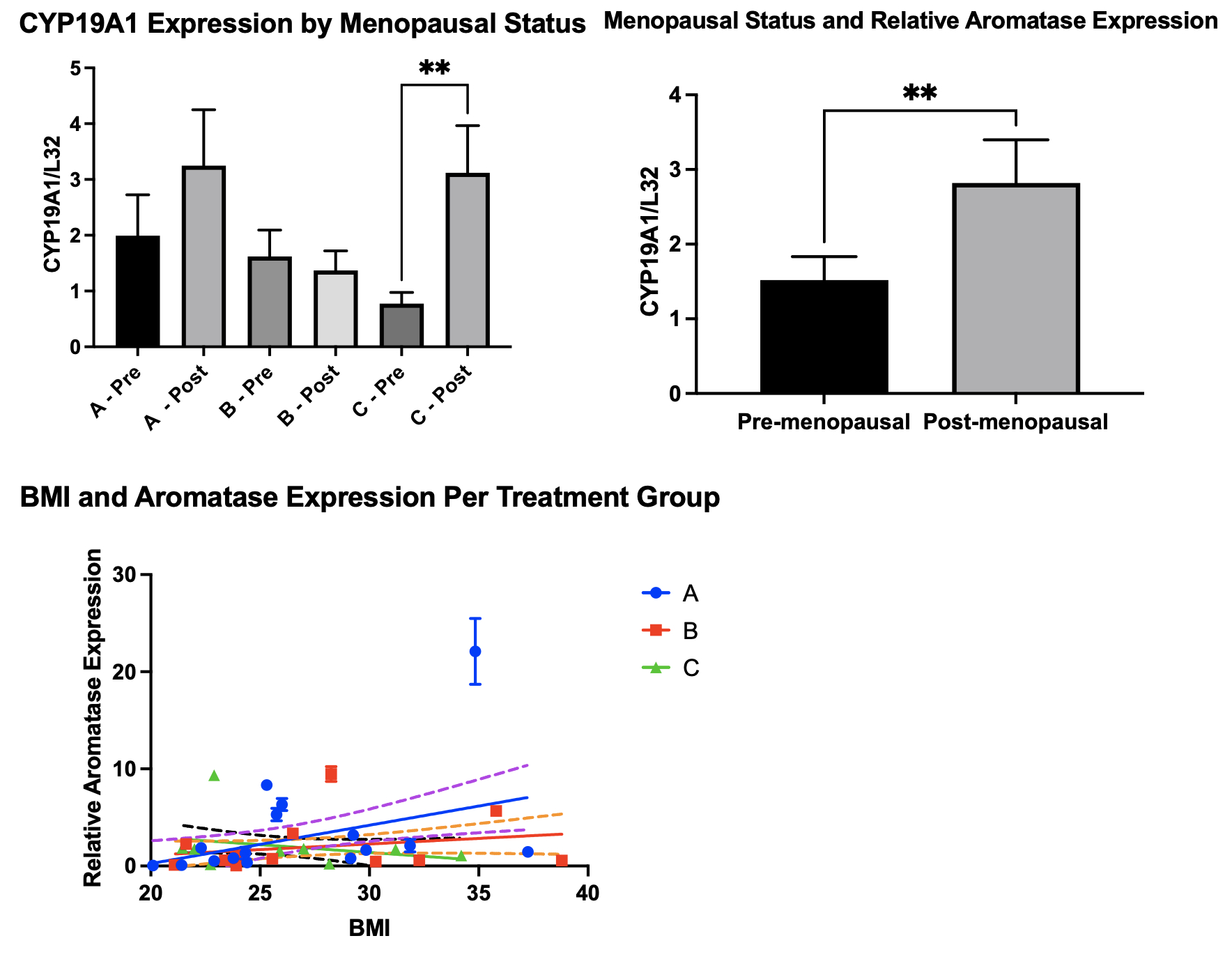Appraising Aromatase Expression in Lipoaspirate Extracted Using Active Filtration, Low Pressure Decantation and Traditional Suction Decantation in Autologous Fat Grafting
Yunchan Chen, David E. Janhofer*, Nicholas A. Vernice, Grant G. Black, Kristy A. Brown, David Otterburn
Weill Cornell Medicine, New York, NY
Autologous fat transfer is a widely adopted technique used to optimize breast contour and improve deformities for breast reconstruction patients. Adipose tissue extracted during the procedure contain adipose stromal cells (ASCs), which are the primary mediators of androstenedione to estrogen aromatization and may be of concern for patients with a history of hormone receptor positive breast cancer. Given the relative paucity of biochemical data, this study aims to examine whether the method of fat processing influences the degree of aromatase expression in lipoaspirates extracted from breast cancer patients.
A prospective, single center randomized control enrolled patients with a history of previous breast undergoing breast reconstruction with available harvest sites for fat grafting. Patients are randomized into one of three study arms distinguished by the method of autologous fat grafting (active filtration, low pressure decantation, and standard decantation) in a 1:1:1 ratio. qRT-PCR for aromatase gene CYP19A1 (Target: Forward: 5? ATTCGGCAGCAAACTTGGGC-3?, Reverse: 5?-GGGGCCTGACAGAGCTTTCATA-3?) is used to compare the relative expression in each patient sample.
In pooled analysis across all samples, aromatase levels are significantly correlated to BMI and menopausal status (p<0.05). Subgroup analysis showed stronger positive correlation between aromatase and BMI for samples collected in traditional suction decantation (correlation p<0.05), and a stronger effect of menopausal status on aromatase expression in samples in low pressure decantation (correlation p < 0.05).
The observed stronger correlation between BMI and menopausal status in the tissue processed using the traditional and low-pressure decantation may point to the greater component of adipose stromal cells in the extracted lipoaspirates. While the pro-tumorigenic effects of ASCs on dormant breast cancer cells is currently debated, lower aromatase/ASC levels have been linked to reduced chronic inflammation and may offer longitudinal benefits for patients with a history of breast cancer.

Back to 2023 Posters


